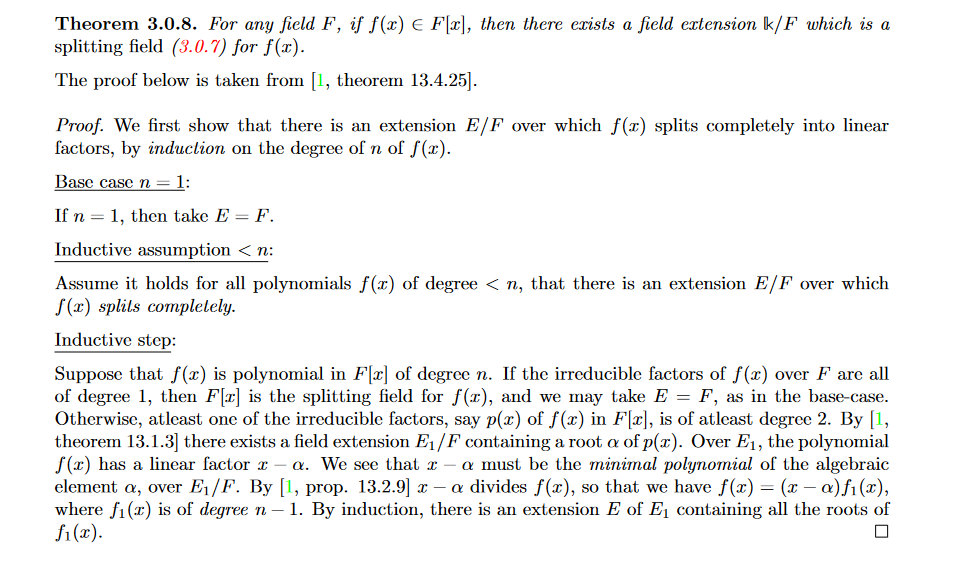
Am I correct that the induction-hypothesis should be something like: "Assume that for every field extension K/F, and every polynomial g(x) in K[x] of degree < n (strong induction), there exists some extension field E/K such that g(x) splits completely into linear factors in E[x] (indeed, E/F if K/F and E/K)".
My formulation is motivated by the fact that f_1(x) is not neccessarily a polynomial in F[x]; so to apply the inductive assumption, we need something stronger than "every polynomial f(x) in F[x] of deg < n has a field extension E containing all the roots of f(x)".
P.s. I am not sure how you formulated this in class, I am not claiming you made a mistake, but I am not sure this was highlighted. Unless I am stupid and missing something obvious.
Do you agree?
Best,
Ben